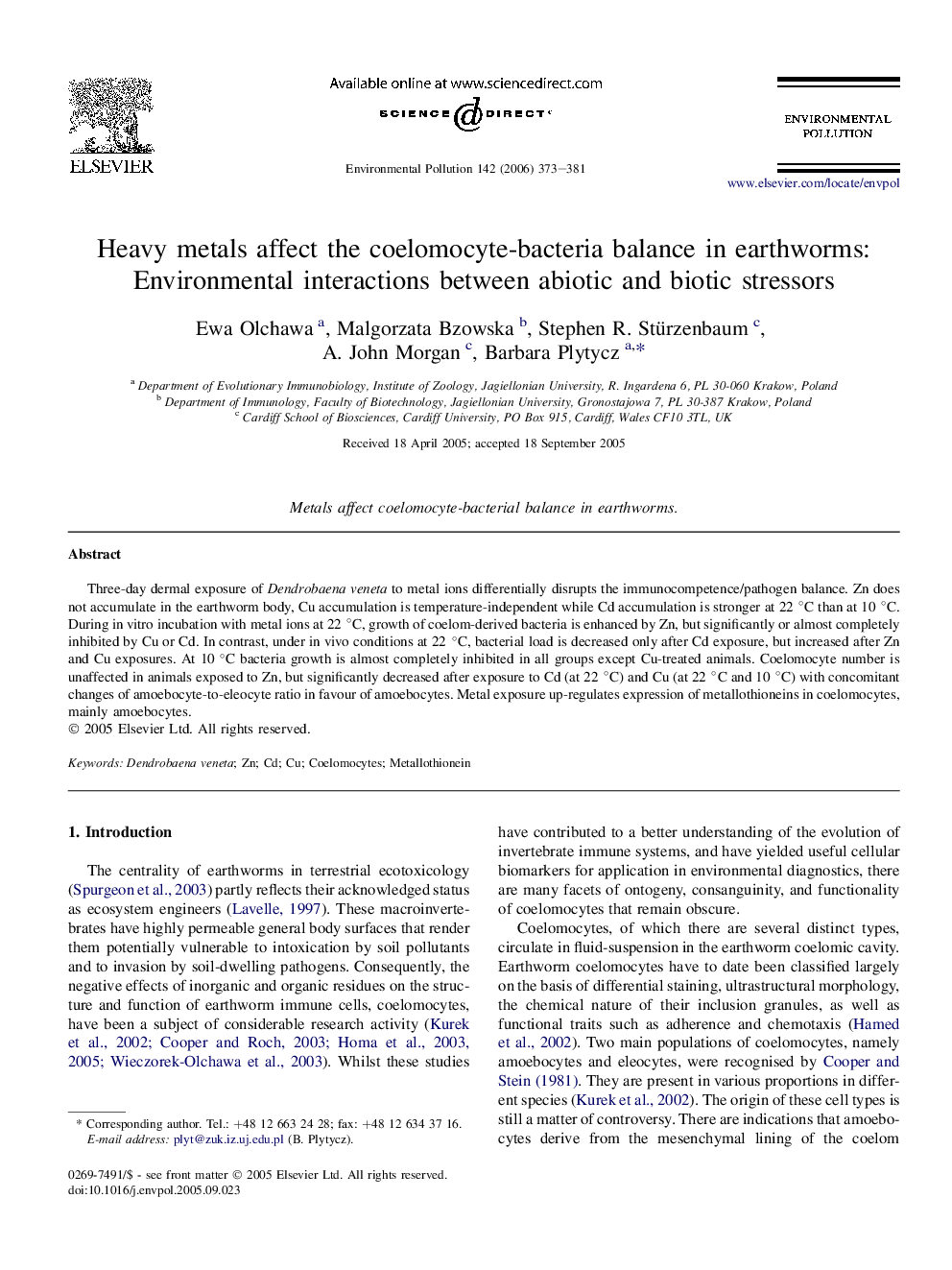| Article ID | Journal | Published Year | Pages | File Type |
|---|---|---|---|---|
| 4428094 | Environmental Pollution | 2006 | 9 Pages |
Three-day dermal exposure of Dendrobaena veneta to metal ions differentially disrupts the immunocompetence/pathogen balance. Zn does not accumulate in the earthworm body, Cu accumulation is temperature-independent while Cd accumulation is stronger at 22 °C than at 10 °C. During in vitro incubation with metal ions at 22 °C, growth of coelom-derived bacteria is enhanced by Zn, but significantly or almost completely inhibited by Cu or Cd. In contrast, under in vivo conditions at 22 °C, bacterial load is decreased only after Cd exposure, but increased after Zn and Cu exposures. At 10 °C bacteria growth is almost completely inhibited in all groups except Cu-treated animals. Coelomocyte number is unaffected in animals exposed to Zn, but significantly decreased after exposure to Cd (at 22 °C) and Cu (at 22 °C and 10 °C) with concomitant changes of amoebocyte-to-eleocyte ratio in favour of amoebocytes. Metal exposure up-regulates expression of metallothioneins in coelomocytes, mainly amoebocytes.
